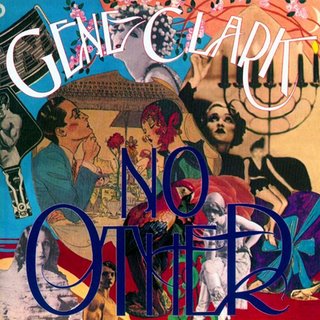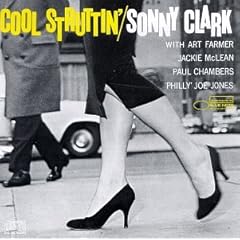
After Gene Clark left the Byrds he tried his hand at various things, sharing writing and recording duties with other people (the Gosdin Brothers, Doug Dillard) and contributed bits and pieces to the Byrds without rejoining them officially but it wasn't until he got the chance to record his first proper solo album, White Light (1971), that his remarkable and completely unique version of roots-folk and country-rock got another proper airing. It's a fantastic album, if a little maudlin, and it effectively set the template for the rich seam of introspective Americana that has burgeoned over the following forty years. The songs are wonderful, taking Gram Parsons reverent view of the history of country and completely remoulding it in the shape of modern rock - in many ways this is truly revolutionary stuff, but it's so quiet and delicate about its own achievement you almost wouldn't know. 'With Tomorrow', 'For a Spanish Guitar' and '1975' are lovely, deeply affecting tunes, that make no apology for little stumbles in performance, and as a result are incredibly personal. Anyway, it's a fine, fine album. But no match for the absurd grandstanding that was to follow with 1974's legendary No Other album. Reissues of White Light have a few bonus numbers, including a couple of real winners in 'Opening Night' and 'Winter In'.

No Other is a true landmark in American music, albeit one almost entirely ignored on its released and for many years afterwards. It's the most extraordinary fusion of country, folk, soul, R&B and gospel and although the country element is firmly to the fore the combination is absolutely seamless, there's no telling the joins, and there is nothing forced about it whatsoever. The songs are huge, both in terms of status and structure and with the massed orchestra and vocals (and a budget that went waaaaay beyond what records usually cost at the time) it's a monumental piece of work. The ostentation and the ambition (and the lunatic expense) meant that the label, Asylum, were not only furious at Clark and his cohorts, but also were disinclined to promote the record and it pretty much sank, only to resurface in the early 90's as a touchstone for Americana and indie acts. And rightly so, it's quite, quite brilliant.

Total change of mood now with Sonny Clark's awesomely smooth piece of hard bop, Cool Struttin' (1958). Four songs of around ten minutes apiece, each one a laid-back demonstration of the casual brilliance of Blue Note studio collectives. Art Farmer and Jackie McLean give superb brass backing to Clark's causal but intricate piano lines, and the whole thing is testament to the sheer intelligence of the Blue Note stable, even when there's nothing too desparately challenging about this stuff.

Moving on eighteen years we have jazz of a very different hue in Stanley Clarke's School Days (1976). Now afficianados of fusion say that this is a high water mark for the genre. I say it's hilariously corny. Bass solos, particularly jazz ones are inherently funny anyway, but when the lead instrument throughout is Clarke's fantastically technically adept slap bass playing it just gets funnier still. I'm sure it's a brilliant record in truth but all I can hear is the seventies at its absolute corniest. Clarke's time playing with Chick Corea certainly wasn't wasted as this amazing piece of ridiculous showing off to no effect amply demonstrates.

I have never really totally understood the Clash, I know how important those records were and by God they leagues ahead of the Sex Pistols in terms of having any reason whatsoever to exist, but it's still just all a bit to po-faced for me. There are, of course, some blistering tunes and there's no denying that the eponymous debut album from 1977 is a great bit of UK punk, but I have to admit I always end up comparing what was happening in the UK and the US and UK punk always comes up wanting for me, always sounds a bit like a more slapdash pub rock (I mean that's absolutely all the Sex Pistols were, and who else was there? Sham 69? 999? the UK Subs?). Anyway, the Clash is a great album and I would never try to claim it wasn't but I just don't hear the world shatteringly radical work that people often claim for it. To be honest I prefer '(White Man) in Hammersmith Palais' (1978) as a song to anything on the first album.


Of course it's against the law to say anything other than that London Calling (1980) is a truly great album. And it is. But....it's got 'Koka Kola' on it. And it's got 'The Right Profile' and 'I'm Not Down' on it. The thing is, right, I really think that the most brilliantly and succesfully eclectic album to come out the UK punk era is a single LP version of London Calling. But that was never made and instead it's a double, and there's too much going on and too much that just misses the mark by a whisker for it to be the mindblowing piece of creative genius that people claim for it. It's absolutely brilliant, no question, and there are some really astonishingly good songs on it and it's got the balls to be an outright pop album for most of its running time, but still....Anyway, that's probably the one that's most likely to get people annoyed so far so I'll leave it there.

No comments:
Post a Comment